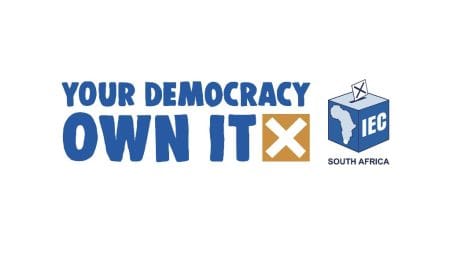South Africans receive calls every day from people claiming to work for well-known mobile networks such as Vodacom, MTN, Telkom, Cell C, or Rain. While some of these calls are legitimate and may relate to upgrades, new deals, or customer feedback, many are not. Scammers are becoming increasingly skilled, using stolen personal information, fake numbers, and carefully rehearsed scripts to convince unsuspecting individuals to share private details.
Knowing how to spot these scams is essential to safeguarding your money, privacy, and identity. This guide highlights five key warning signs that indicate the caller is not from your network provider and offers practical advice to help you stay protected.
1. They Ask for Your PIN, Password, or One-Time PIN (OTP)
A legitimate network provider will never ask for your banking PIN, password, or OTP during a phone call. This is the most common and dangerous red flag.
How the Scam Works
Scammers often claim:
- They need to “verify your identity” for an upgrade or refund.
- Your SIM card will be “deactivated” unless you confirm your account details.
- There’s a “promotion” you must confirm using an OTP sent to your phone.
In reality, they’re trying to gain access to your online banking or SIM profile.
What You Should Do
- Never share OTPs or passwords over the phone, SMS, or WhatsApp — even if the message looks legitimate.
- End the call immediately if pressured for codes.
- Call your network’s official customer service line using numbers from their website — not the one provided by the caller.
2. The Caller Pressures You to Act Immediately
Scammers rely on fear and urgency to prevent you from thinking clearly. Any caller who insists you “must act right now” should raise alarms.
Common Phrases to Watch For
- “Your line will be disconnected in the next 30 minutes.”
- “We’re upgrading your package now — you just need to confirm quickly.”
- “If you don’t verify today, your number will be blocked.”
These tactics are designed to make you panic and comply.
Why It’s a Red Flag
Network providers typically send written notices (SMS or email) about changes or issues — they rarely demand immediate action on calls. Real agents will let you verify information at your convenience.
How to Respond
- Stay calm. Politely tell the caller you’ll contact the provider directly.
- Don’t confirm your name, ID, or address if the call feels suspicious.
- Report the number to your provider’s fraud department.
3. The Caller Knows Personal Details — but Something Feels Off
Fraudsters often have partial personal data — such as your full name, ID number, or phone plan. They use this to sound legitimate.
How They Get Your Data
- Data breaches or leaks from unrelated services.
- Phishing forms disguised as “network surveys.”
- Social media oversharing.
They may say, “We can see your contract ends this month,” to earn trust, even though they’re guessing or using stolen data.
Why This Is Dangerous
Once you confirm or add missing details (like your ID or email), you complete the puzzle for identity thieves.
How to Handle It
- Don’t confirm any details — simply ask where the caller obtained your information.
- Record the caller’s number (or screenshot if it appears spoofed).
- Inform your provider by emailing or calling their verified support line.
4. The Caller’s Number or Email Looks Suspicious
Fraudsters often use “number spoofing” — a technology that makes fake numbers look official. For example, a scam call may display as “Telkom Customer Care” or begin with 135 / 082, similar to real service lines.
Red Flags in Numbers and Email Addresses
- The number looks too long or too short for a South African business line.
- The email ends in @gmail.com, @yahoo.com, or @outlook.com instead of a corporate domain (like @vodacom.co.za).
- The number changes after each call attempt.
How to Verify
- Check your provider’s official contact list on their website:
- Use your phone’s call-blocking feature or apps like Truecaller to identify scam numbers.
- Report the number to the National Consumer Commission or the Anti-Fraud Helpline at 0860 101 248.
5. They Offer Unrealistic Rewards or Free Upgrades
“If you upgrade today, you’ll get a new iPhone for free.”
Sound familiar? This is one of the oldest tricks in the book.
Why It Works
Scammers exploit the appeal of discounts, cashback, or “exclusive offers” that sound too good to be true. They often claim:
- “You’ve won a loyalty bonus.”
- “Your contract qualifies for a free phone.”
- “We’re running a secret promotion for long-term customers.”
Once you provide banking or delivery details, they vanish — or worse, they debit your account.
Signs It’s a Scam
- You’re asked for upfront payment or courier fees.
- They request banking details for “verification.”
- The offer is “only valid if you confirm now.”
What Real Providers Do
Genuine network promotions are publicly advertised on official platforms — websites, apps, and verified social media pages. Any exclusive deal will always include written confirmation or an email from a corporate address.
How to Check
- Visit your provider’s deals page directly:
- Contact their call centre using official channels before agreeing to anything.
Additional Red Flags to Watch Out For
Beyond the five major warning signs above, be alert to these subtler indicators:
- Background noise or poor call quality — often suggests a scam call centre.
- Inconsistent scripts — the caller mixes product names or gets company terms wrong.
- Foreign accents claiming to represent local offices.
- Refusal to send confirmation by SMS or email.
- Aggressive or rude tone when you hesitate or ask questions.
Legitimate agents are trained professionals who remain courteous and patient — they will never threaten or guilt-trip you.
What to Do If You Think You’ve Been Scammed
If you suspect a scammer has tricked you into sharing information or money, act quickly.
Step 1: Contact Your Network Provider
Immediately call your provider’s verified customer care:
- Vodacom: 082 135
- MTN: 135
- Cell C: 084 135
- Telkom Mobile: 081 180
- Rain: Chat via rain.co.za
Ask them to:
- Flag your account for fraudulent activity.
- Reverse unauthorised transactions where possible.
- Reset or secure your online profile.
Step 2: Contact Your Bank
If you revealed banking details, notify your bank’s fraud department immediately:
- FNB: 087 575 9444
- Standard Bank: 0800 020 600
- Absa: 0860 557 557
- Nedbank: 0800 110 929
- Capitec: 0860 102 043
They can freeze cards, block accounts, and trace suspicious activity.
Step 3: Report the Incident
Report to:
- South African Fraud Prevention Service (SAFPS) – www.safps.org.za
- National Consumer Commission (NCC) – 0860 266 786
- South African Police Service (SAPS) – File a case at your nearest station.
- Cybercrime Helpline (Cybersecurity Hub) – www.cybersecurityhub.gov.za
Reporting helps authorities track scam networks and protect others.
Step 4: Change Your Passwords
Reset passwords for:
- Online banking
- Network provider account
- Email and cloud services
Use strong, unique passwords and enable two-factor authentication.
Step 5: Stay Alert
- Monitor your bank and airtime balances.
- Check your credit profile at TransUnion or Experian for new, unauthorised accounts.
- Install trusted mobile security apps.
How to Verify Legitimate Calls from Network Providers
To help you distinguish real calls from fake ones, here’s how official provider communications typically work in South Africa:
| Provider | Legitimate Contact Channels | How to Verify |
|---|---|---|
| Vodacom | Calls from 082 135, SMS from “Vodacom” | Ask agent for your upgrade reference number, then verify in-store or via the MyVodacom App. |
| MTN | Calls from 135 or “MTN Upgrades” | Log in to your MyMTN App to check upgrade eligibility. |
| Cell C | Calls from 084 135 or “Cell C Deals” | Validate via cellc.co.za under “My Account.” |
| Telkom Mobile | Calls from 081 180 or emails from @telkom.co.za | Log in to your Telkom App for confirmation. |
| Rain | No sales calls; all deals via rain.co.za | Contact support via official chat only. |
If the caller’s details don’t match these sources — hang up.
Why Network Scams Are Increasing in South Africa
According to the South African Banking Risk Information Centre (SABRIC), phone-based impersonation scams rose by more than 23 percent in 2024. Criminals exploit the growing digital economy and consumers’ familiarity with remote customer service.
Factors Driving the Trend
- SIM swap fraud used to access mobile banking.
- Leaked consumer databases sold on the dark web.
- Economic pressure, making people more vulnerable to “reward” calls.
- Sophisticated caller-ID spoofing that mimics local numbers.
As South Africans increasingly rely on mobile data and digital services, awareness and digital literacy are your strongest defence.
Practical Tips to Protect Yourself
Here’s a summary of actions every mobile user should adopt:
- Save your provider’s official contact numbers in your phone.
- Avoid sharing ID numbers unless you initiated the contact.
- Use biometric login for banking apps instead of passwords.
- Activate SIM-swap notifications from your provider.
- Educate family and colleagues about scam tactics.
- Enable call-filtering apps and report suspicious numbers.
- Bookmark official websites to avoid phishing links.
- Check your monthly statements for unexpected charges.
Also check: 15 Red Flags That the Caller Isn’t From Your Bank
Trust your instincts. If something feels off, it probably is. A legitimate network agent will never rush, intimidate, or ask for sensitive details over the phone.
By recognising the five red flags outlined in this guide — requests for PINs or OTPs, pressure to act fast, suspicious familiarity, unverified contact details, and unrealistic offers — you protect not only your phone account but also your identity and finances.










